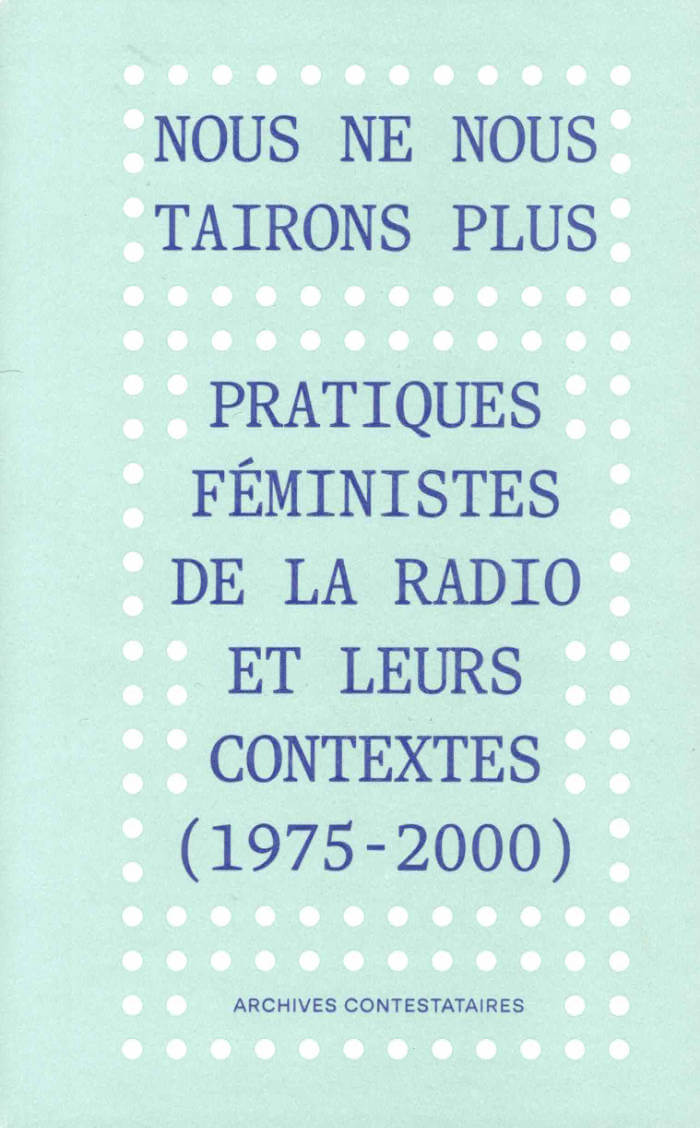
Nous ne nous tairons plus
La publication de l'inventaire des archives sonores de l'émission Remue-ménage marque la fin d'un long travail de numérisation, description et valorisation des émissions féministes diffusées sur Radio zones. En octobre 2023, nous avions organisé une journée d'étude sur les pratiques féministes de la radio. Devant l'intérêt des contributions proposées durant cette journée, nous avons décidé de les publier en un volume paru début 2025.
Le livre présente différentes expériences de radio-diffusion – d’abord pirates, puis sur les ondes des radios libres qui émergent au début des années 1980 en Europe. Par exemple, la radio Wellenhexen en 1976 à Zurich qui démontre de la vivacité de la scène contre-culturelle féministe et lesbienne. Ou encore les émissions Radio pleine lune et Remue-ménage, étroitement liées au Mouvement de libération des femmes genevois et diffusées pendant 20 ans sur les ondes de la station Radio Zones basée dans l’Ain.
L’ouvrage présente également la trajectoire de Nelly Trummel, fondatrice de l’émission anarcha-féministe Femmes libres sur Radio libertaire, et aborde la présence contrastée des femmes sur la radio de lutte Lorraine cœur d’acier qui émerge dans le cadre des mobilisations des sidérurgistes dans l’est de la France.
Comment la radio s’inscrit-elle dans les différents usages féministes des médias, pour constituer un outil de lutte politique ? La radio permet-elle l’expression et l’émancipation des femmes qui s’en emparent, ou au contraire, reproduit-elle des dominations ? Si ces appropriation féministe de la radio constitue l’exception dans la déferlante des radios libres, que cette exception nous apprend-elle sur la norme de médias dans lesquels les femmes sont dominées ?
Contributeur·ices : Juliette Volcler, Anne-Christine Schindler, Géraldine Beck, Fiona Prieur, Ingrid Hayes, Mathilde Leroy et Marc Colin.




